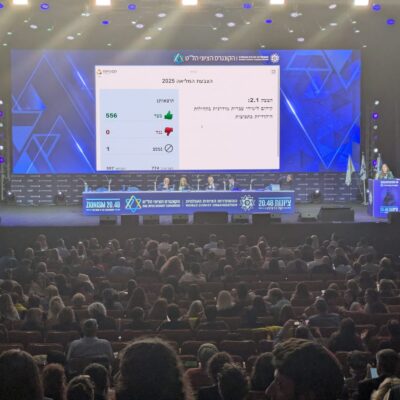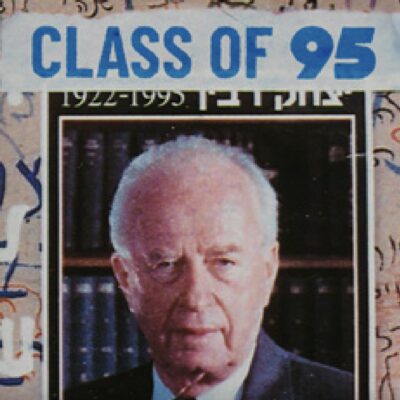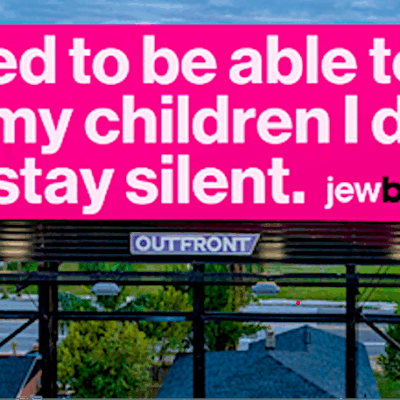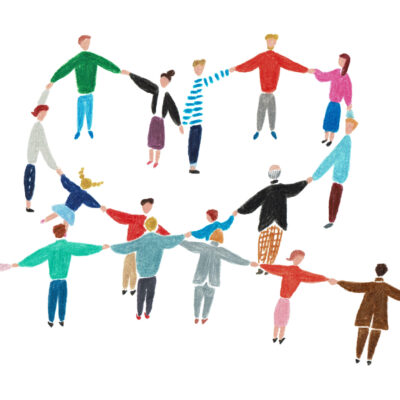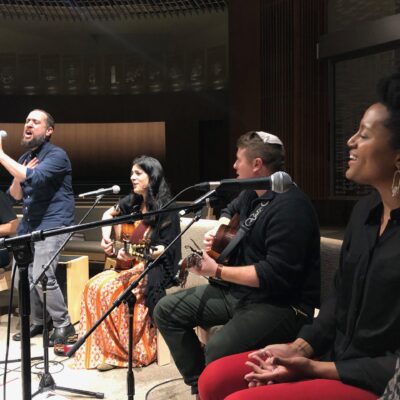Opinion
Self care in times of war and trauma
For the entire Jewish world, and especially for Israelis who sit on the front line of this war, the past 647 days have been brutal. Rabbis, cantors, educators and Jewish communal professionals in the diaspora have faced a particular challenge as we explain, console and advise the Jewish and the general communities where we dwell – trying to make sense of the events in Israel, Gaza and Iran, as well as the antisemitism at home and abroad. As we work to help others, we often forget to provide ourselves with the space to work out our own grief. I was confronted with this reality on a flight to Israel this week.
“Grief is not a linear process,” I often remind people after the loss of a loved one. It’s important to say this because, on a surface level, both Jewish ritual (with its stages of anenut, shiva, sheloshim and 11 months) and modern society (with its “Five Stages of Grief”) make it seem linear. A deeper understanding of both Jewish tradition and Kubler-Ross make it clear that is not the intent of either the halachic or psychological frameworks. Yet, the misconception persists.
I remind people it’s not linear to allow them the space to know that unexpected and tremendously difficult moments of intense grief can happen at any time and often hit us out of the blue – in a grocery store, seeing an item we associate with our loved one; the mention of a favorite book or hearing a favorite song; a Facebook “reminder” of a picture with our loved one. Those moments are often particularly hard because we think we are “over” our grief and suddenly find ourselves experiencing it anew.
I had such a moment on the final leg of my flight last week while traveling from Abu Dhabi to Tel Aviv to take part in the Shalom Hartman Institute’s Rabbinic Torah Seminar in Jerusalem. After months and weeks of worrying whether the program would be canceled and figuring out travel contingencies, I was just hours away from landing at Ben Gurion. The adorable but vocal children in the rows around me were making sleep difficult, so I put on my AirPods and listened to the backlog of podcasts I had downloaded. That’s when a several-week-old episode of “Identity Crisis” with Yehuda Kurtzer came on, in which he announced and lamented that some of the Shalom Hartman Institute summer programs were canceled due to the Iran war.
Despite the fact (or, perhaps, because of the fact) that my program was the only one Hartman didn’t cancel, hearing Yehuda describe his sense of loss regarding the cancelation of the other programs broke me. After 642 days of trying to hold myself together to be there for my family and my community, I was now sitting on the plane alone, starting a six-week sabbatical and vacation, giving me time and space not to worry about how everyone else is doing.
In times of trouble, like most Jewish professionals, I focus on helping the community process these events. In doing so, I often forget to give myself the time or space I need for my own grieving. But now, sitting on that plane, I felt my eyes begin to well up with tears and suddenly the dam broke and all the pain I had been repressing came pouring out. I was struck by the grief for the hostages and their families. I felt the pain of 1,200-plus people killed in Israel on October 7 and the 900 IDF soldiers killed in the war; of the 28 Israelis killed and 15,000 Israelis displaced by Iranian missiles. I felt the pain of thousands of Israelis and Palestinians who have lost their loved ones, homes and livelihood. I realized I was also grieving the rise of antisemitism throughout the world, the pain of five years watching our youth grow up in a world of the pandemic, war and assaults on democracy. And, finally, I felt the pain of repeated disappointment and loss during these past years, when travel, conferences and plans have been repeatedly canceled or postponed.
I usually avoid the word “triggering,” but listening to that podcast provided me the space I didn’t realize I needed to experience the frustration, anger and loss I have largely repressed. I recognize the losses I’ve experienced pale in comparison to those more directly impacted by October 7 and its aftermath. It is not my kids who put themselves in harm’s way to defend a country. It is a choice for me to keep the alarms from Homefront Command active on my phone so I’m aware of missile attacks even when I’m home; my safety is not dependent upon it.
But I share this experience to remind myself and all of us that grief is not a competition — we are each entitled to feel our own pain, to mourn our own losses, even when we know that others have it worse than us. Sometimes, we also need to let ourselves grieve.
I am grateful for a sabbatical to have this time and space to reflect, to learn, to rebuild and simply to be. I look forward to being with colleagues at the Hartman Institute, to study together and focus on our own experiences, allowing us to return to our communities better able to serve their needs. I pray that a deal will be reached while we are here to return every single hostage, end the war and, with God’s help, lead this region to a better and more peaceful future.
As Jewish professionals, we don’t always have the time or luxury to put on our own proverbial oxygen masks before we take care of the needs of others. But as I was reminded on that plane, if we want to keep breathing and serving, we also can’t ignore our own need for oxygen forever.
(This content was adapted from a Facebook post by the author.)
Rabbi Marc Israel is the rabbi at Tikvat Israel, a Conservative synagogue in Rockville, Md.

 Add EJP on Google
Add EJP on Google
